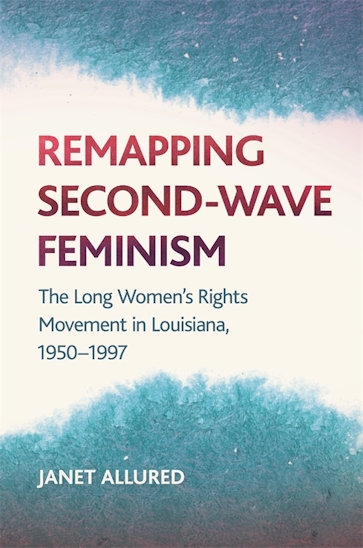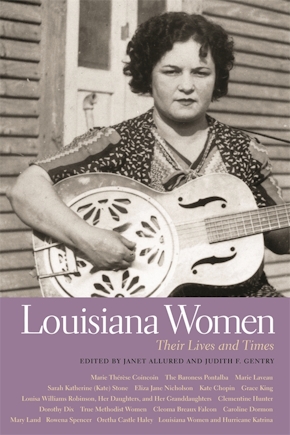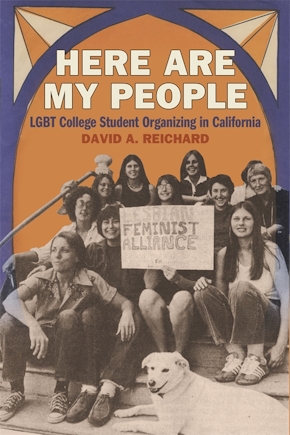Remapping Second-Wave Feminism
The Long Women's Rights Movement in Louisiana, 1950–1997
Title Details
Pages: 376
Illustrations: 24 b&w photos
Trim size: 6.000in x 9.000in
Formats
Paperback
Pub Date: 10/15/2018
ISBN: 9-780-8203-5477-4
List Price: $30.95
Hardcover
Pub Date: 11/01/2016
ISBN: 9-780-8203-4538-3
List Price: $120.95
eBook
Pub Date: 11/01/2016
ISBN: 9-780-8203-5004-2
List Price: $67.95
Related Subjects
Remapping Second-Wave Feminism
The Long Women's Rights Movement in Louisiana, 1950–1997
Rethinking the role and impact of the South on the national feminist movement
Skip to
- Description
- Reviews
Scholars of second-wave feminism often center their research on northern thought and political activity and usually overlook the vibrant pockets of activism that existed elsewhere. In Remapping Second-Wave Feminism, Janet Allured attempts to reshape the national narrative by focusing on the grassroots women’s movement in the South, particularly in Louisiana.
This book delves into unexplored origins of the feminist movement. While acknowledging the ways that the fight for African American civil rights produced the women’s liberation movement in the South—and subsequently in the North—Allured also locates other wellsprings of the movement that were particularly important to southern change-seekers, especially preexisting women’s organizations such as the League of Women Voters and the YWCA. Also, for many southern feminists, being part of a faith tradition that emphasized social justice reform is what ultimately propelled them into working for gender equality. Allured highlights key figures in Louisiana; divisions based on regional, sexual, and ideological differences; access to abortion; lawsuits that had national implications that emanated from southern women; and the fight against sexual assault and domestic violence. Through detailed archival and oral history research, she has forged a new path, making this a foundational work for the field. Remapping Second-Wave Feminism will amend how we reflexively view feminism as a northern phenomenon, giving proper due to the southern contribution.
—Rebecca Sharpless, author of Cooking in Other Women's Kitchens: Domestic Workers in the South, 1865–1960
—Susan Tucker, author of Telling Memories Among Southern Women: Domestic Workers and Their Employers in the Segregated South
—Megan Taylor Shockley, author of We, Too, Are Americans: African American Women in Detroit and Richmond, 1940–54



